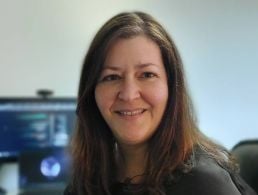Thinking about a career in computer science but not sure where to go? Have you considered a career on the academic track?
Dr Jodi Tims has a lot of strings to her bow. Not only is she a professor of computer science at Baldwin Wallace University in Ohio, but she is also the chair of the Association for Computing Machinery’s Council on Women in Computing.
While a career in computer science might be traditionally considered in terms of jobs in industry, Tims believes the rewards a career in academia can provide are hard to beat. She’s also sad to see so few women in computing these days.
Here, she spoke to Siliconrepublic.com about her career and how she got to where she is now.
What first stirred your interest in a career in computer science?
About a year after finishing my bachelor’s degree in mathematics, I was talking with my adviser and mentor from my undergraduate years about my interest in pursuing a master’s degree. His advice to me was: “If I was your age, I’d consider computer science.” I took that advice, was accepted into a computer science master’s programme and never looked back.
What education and other jobs led you to the role you now have?
To move through the ranks of an academic career, it is pretty much a requirement that you complete a PhD or other doctoral programme for most areas of study.
I started my career at the instructor level, teaching mathematics and pursuing higher degrees in computer science part-time. I moved into a tenure-track position in computing after completing my master’s degree and was promoted through the ranks as I gained experience and finished off my PhD.
I have taught at three universities in my career and each move gave me the opportunity to grow in a new dimension, mostly around responsibilities of curriculum-planning and department leadership.
What were the biggest surprises you encountered on your career path?
One of the biggest surprises for me was the decline in interest in computing as a path of study for undergraduate women.
This decline started around the mid-1980s (after I had committed to the field) and continued for the next 20 years, finally levelling off, but with a net effect of only about 20pc of the bachelor’s degrees in computing going to females. I find the field interesting, challenging and rewarding and would love to see other young women get excited about it.
The biggest challenge I encountered was adapting to the demands of an academic career while raising a family.
Despite some popular notions that university faculty have low workload demands, the reality is that we have to balance teaching, research, mentoring of students, service to our institutions and discipline, and staying abreast of the trends in a fast-developing field. Figuring out how to manage all of that is still something I struggle with at times.
Was there any one person who was particularly influential as your career developed?
In addition to my undergraduate mentor, I’d have to single out my graduate school thesis adviser and mentor, Dr Mary Lou Soffa. Being a part-time PhD student while working full-time at a university was demanding and Mary Lou was always very supportive of me and encouraged me to continue at times when it would have been much easier to give up.
She taught me a lot about computer science and research, but she also provided a strong role model as a woman in an academic career that I have frequently relied on as I’ve moved through my career. I think it is safe to say that I would not have followed the path that I have without her influence.
What do you enjoy about your job?
The number-one thing is the students. Not only do they keep me young (or at least I want to believe they do!) but watching them develop and succeed after graduation provides that intrinsic reward that comes with having the opportunity to make a small difference in someone’s life.
I also really enjoy the variety of activity that I have in my current position. I get to work with students, colleagues, administrators and industry partners in varying ways that really energise me and allow me to be creative in the work that I do.
What aspects of your personality do you feel make you suited to this job?
I enjoy being with people – that’s primary. I think I have a good amount of patience, which is often necessary when working with students or acting in a leadership role.
But I also feel like I’m an organised person who understands how to effectively prioritise my work in ways that enable me to address the myriad of responsibilities I have.
How did Baldwin Wallace University support you on your career path?
I feel lucky in that I am surrounded by a talented group of faculty members in my department that enthusiastically support and encourage me as their chair. They work tirelessly to ensure our major programmes continue to develop and they are extremely dedicated to their students. All of this means I have fewer concerns that I have to deal with on a day-to-day basis and that helps a lot.
The university more generally is supportive of my work in the women in computing community and in providing opportunity for me to attend conferences and other professional events that allow me to develop professionally and build a strong network of peers from other institutions.
What advice would you give to those considering a career in this area?
Pursuing an academic career in computing is sometimes devalued in today’s world because there is so much lucrative opportunity in business and industry for those who have computing degrees.
But if an individual has a passion for helping others develop their potential, then an academic career is worth considering.
The experience of interacting with students and colleagues provides intrinsic rewards that are hard to beat.
It can feel like a long road to get the first faculty position, but in the long run I cannot imagine an alternative career that I would have enjoyed as much as what I’ve experienced.




